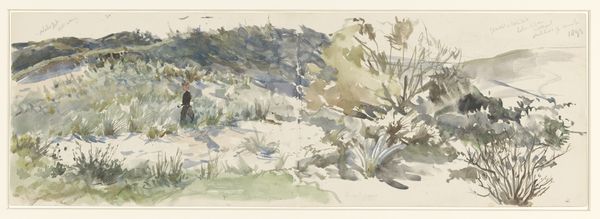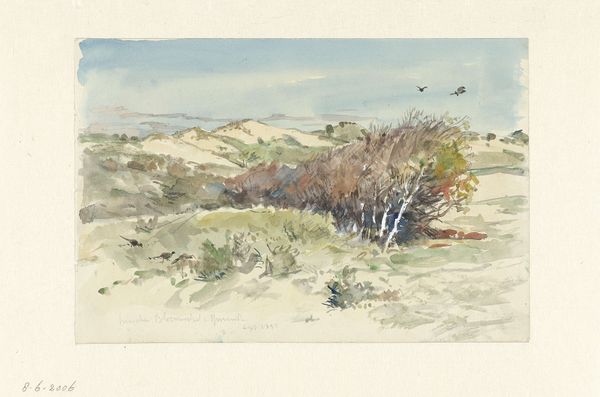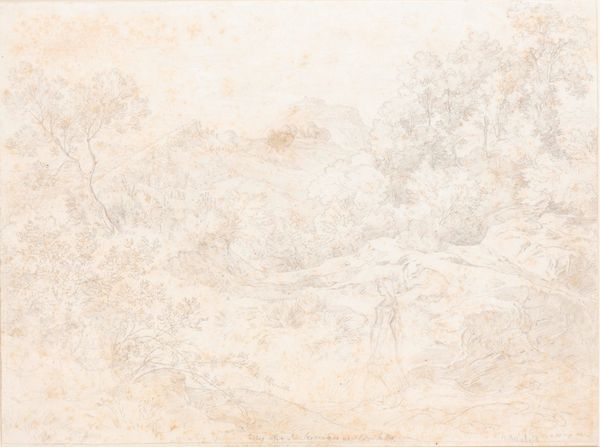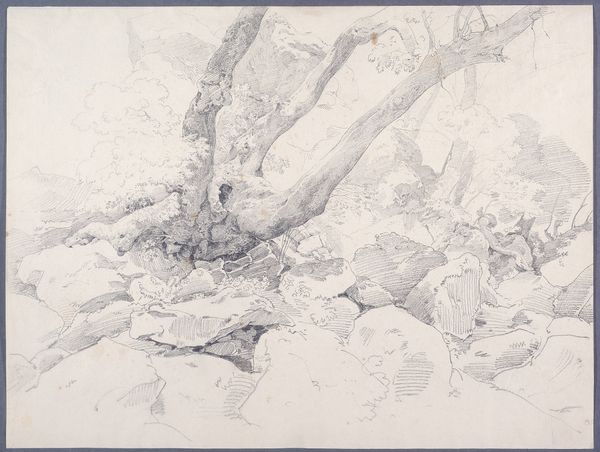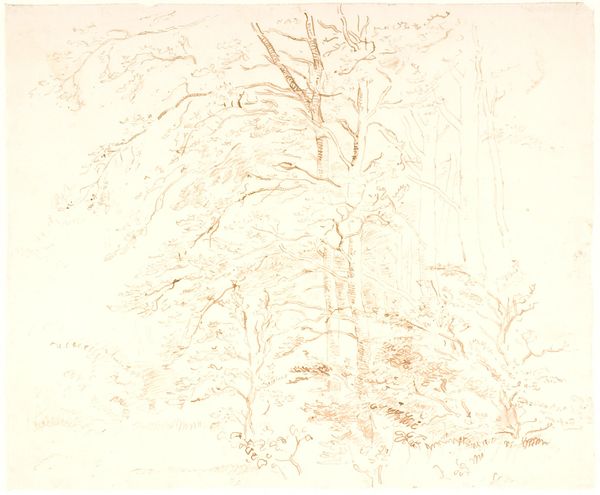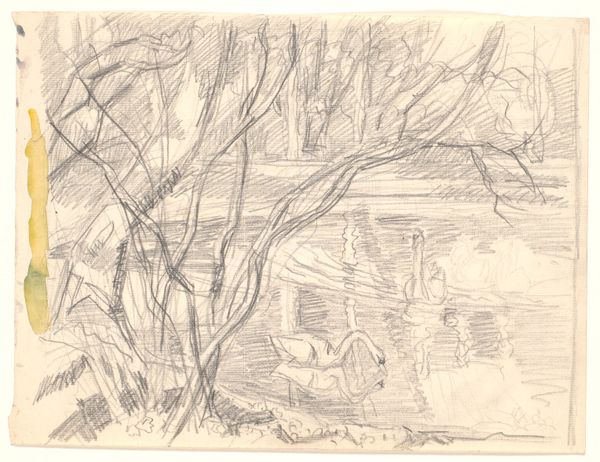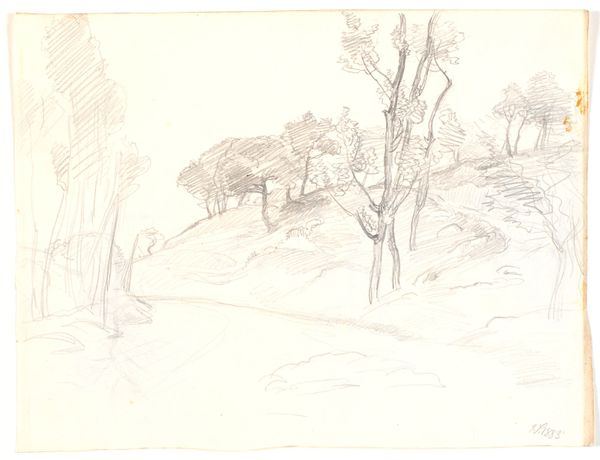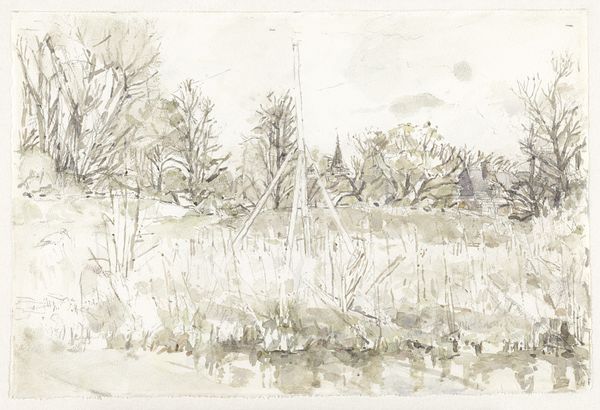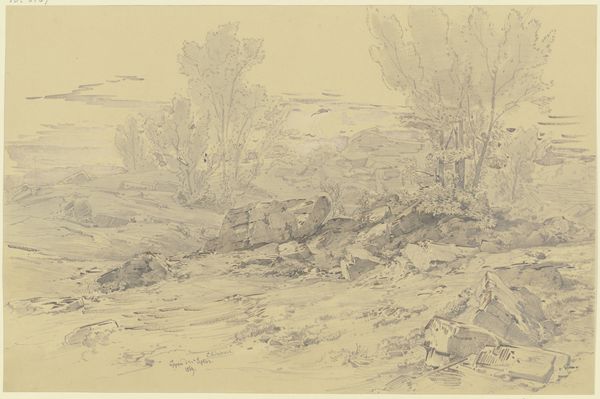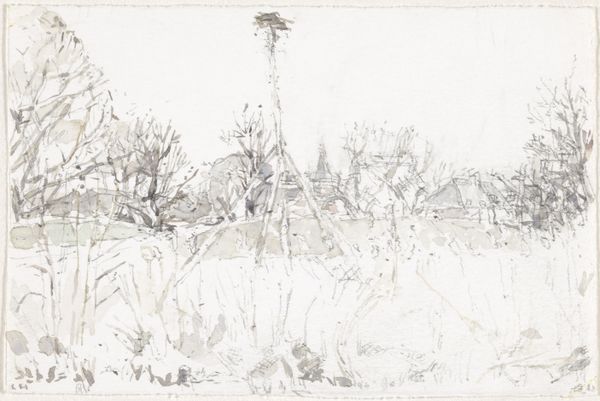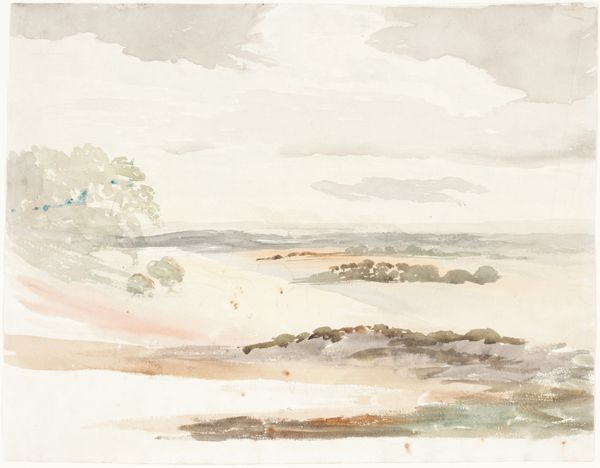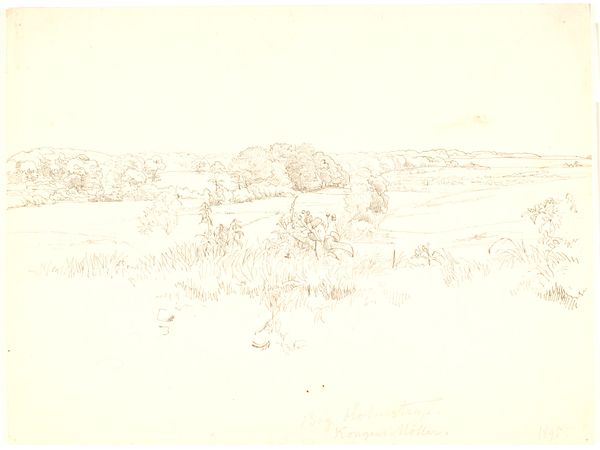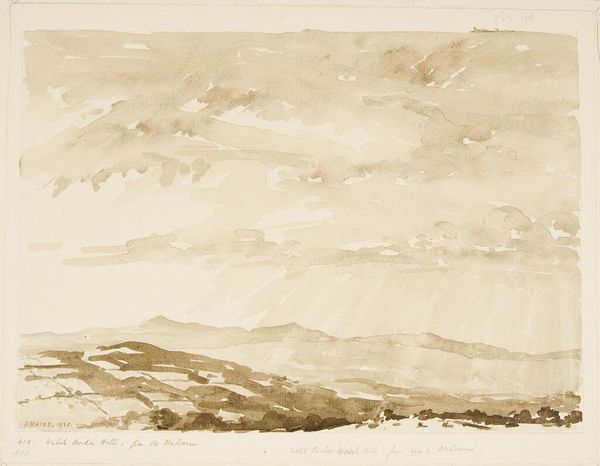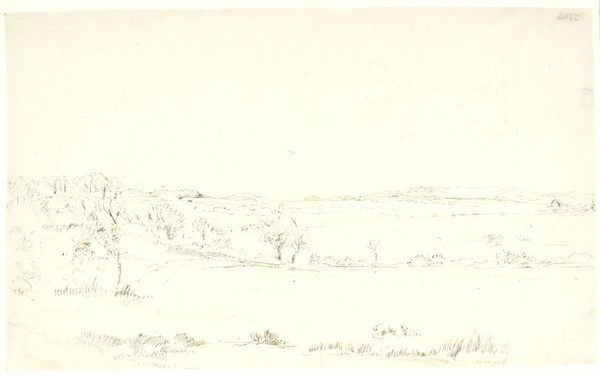
drawing, plein-air, watercolor
#
drawing
#
plein-air
#
landscape
#
watercolor
#
watercolour bleed
#
mixed medium
Dimensions: height 220 mm, width 328 mm
Copyright: Rijks Museum: Open Domain
Curator: Looking at Lau Heidendael's 2011 "Pad Gage 2", what immediately strikes you? Editor: There's a compelling lack of color, almost a monochrome effect. It feels tentative, like a memory half-recalled, or perhaps a space awaiting habitation. Curator: It is rendered en plein air with mixed media, predominately using watercolor. I'm curious, how do you interpret this seemingly subdued landscape within the broader scope of contemporary conversations about place and belonging? Editor: Formally, it is compelling; the composition is subtle. The tonal range is exquisite and complex, but the structure underlying the image remains so deliberately understated, as if the scene is caught in an ephemeral instant. Curator: Yes, Heidendael often explores peripheral spaces, the in-between landscapes that challenge our understanding of both the natural world and the impact of human presence on it. I wonder, given your analysis of the composition, do you feel that her conscious mark-making invites us to consider ideas around marginality or exclusion? Perhaps the "empty" state speaks to environmental issues. Editor: The fluidity of the medium is key; there's a softness that softens the harshness we expect in that kind of critique. Curator: Precisely! I think this is the true art. These subtle bleeds within the watercolors offer a sense of vulnerability which allows for an entry point that avoids didactic pronouncements on social responsibility. Editor: The light seems fragile and transient, beautifully illustrating an emotional landscape rather than a literal one. It’s almost as if what it wants is to fade back into nothing, becoming nothing more than what it really is: light, water, and paper. Curator: The use of open form and understated tones can open channels to empathy that stronger pronouncements would not, don't you think? Editor: Agreed. In the end, its power exists within the delicate nuances that shift under scrutiny. A fleeting, ethereal landscape resisting our grasp, perhaps. Curator: I like that: “resisting our grasp.” It holds us, then, with something intangible and real at once.
Comments
No comments
Be the first to comment and join the conversation on the ultimate creative platform.
